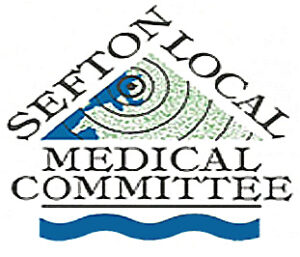Dr David Smith, Chair, Sefton LMC
1) Local Quality Contract (LQC) Hints & Tips
In last month’s bulletin, I reminded practices that the denominator for LQC 01 (palliative care plans) should be approximately 0.6% of your population. If you feel this would not be possible for your practice, by virtue of you not having enough appropriate patients, please contact the LMC. The ICB has prepared a thorough EMIS template to support practices in completing their care plans – I have prepared a shorter version, to help ensure all the codes required for the LQC have been added. Also, there are searches available to identify patients who have had all three parts of the CKD annual review already this year, e.g. during their diabetes review, who would be eligible for the annual review code to be added. If you would like either of these resources, please contact the LMC & I will arrange for these to be forwarded. If a patient is unsuitable for a urine ACR, e.g. because they are incontinent of urine or decline, you can add the ‘urine protein test not done’ code instead. By asking your clinical coders to code when patients are admitted to hospital with an accidental fall, you can maximise your denominator population for osteoporosis risk assessments. Flu clinics are an ideal time for doing opportunistic pulse checks for AF & finally, please remember to submit your Q2 claim form before the end of October.
2) Outpatient Prescribing
The prescribing optimisation form referred to in my last bulletin, for practices to decline prescribing requests from outpatient services, should be circulated any day now. Please use it consistently because by doing so, hopefully we can promote & enforce the necessary culture change at outpatient services. We will ask for the form to be imported into EMIS by the information facilitators, to make it quick & easy for practices to send. We feel the best way to do this is follows: open, complete & save the document in EMIS; then use a template AccuMail to send it from EMIS to the outpatient service. This will record everything you have done & the reason(s) why in the medical record. We do not have a single pushback email address for each local provider yet that practices can use but we are working on this. For now, many providers
(including Southport/Ormskirk) include email addresses on their clinic letters, & the following email addresses could be used for Southport/Ormskirk & LUHFT respectively: soh-tr.gp@nhs.net & riskdept@liverpoolft.nhs.uk.
3) Overseas Bariatric Surgery
You may have seen the letter that the Consortium of Lancashire & Cumbria LMCs has prepared for its members, to provide to patients who request follow up of overseas & other private bariatric surgery. The Association of Cheshire & Merseyside LMCs is working on a similar, albeit more patient-friendly letter & we are hoping that this will be endorsed by our ICB as part of a wider comms strategy. The aftercare for bariatric surgery is of a specialist nature so for NHS patients, it is provided by our local weight loss surgery service for the first two years. However, our ICB dose not fund a specialist service to provide aftercare for patients who have had weight loss surgery in the private sector or abroad. This means GP practices should not be asked to provide aftercare for bariatric surgery (including for NHS patients) & we are unable to refer patients for this.
4) Primary-Secondary Care Interface (PSCI) Survey
We have been asked to draw your attention to the following survey please, to help the North Mersey PSCI Group to identify its future priorities: https://www.surveymonkey.co.uk/r/primarysecondarycareinterface
5) Teledermatology
We understand that some practices in Southport & Formby have volunteered to be early adopters of a teledermatology service. Please could you let the LMC know how this goes? We have made it clear that teledermatology must only complement, not replace the current 2-week rule dermatology services.
6) Wheelchair Referral Forms
The LMC is concerned about the wheelchair referral forms that practices are being asked to complete. We have advised the service that GPs do not receive training in & are unlikely to have experience of this matter; therefore, they would not be indemnified to assist with the assessment or determine medical fitness to be assessed for a wheelchair. The LMC advises that practices stick to providing factual information from the patient’s medical record only.
7) Accelerated Access to Records
The BMA has provided new resources to support practices with this project. It is vital that every practice undertakes a DPIA & the BMA has developed new template that practices may choose to use, rather than the one IM developed locally. Please Google ‘BMA England GPC website’ to access these resources.
8) The NHS App vs. the Alternatives
Please note that some commercial alternatives to the NHS App include options for patients to self-refer for private healthcare services. The LMC recommends that practices promote the NHS App instead, to avoid any patients believing that these non-NHS services are endorsed or promoted by their GP practice.

